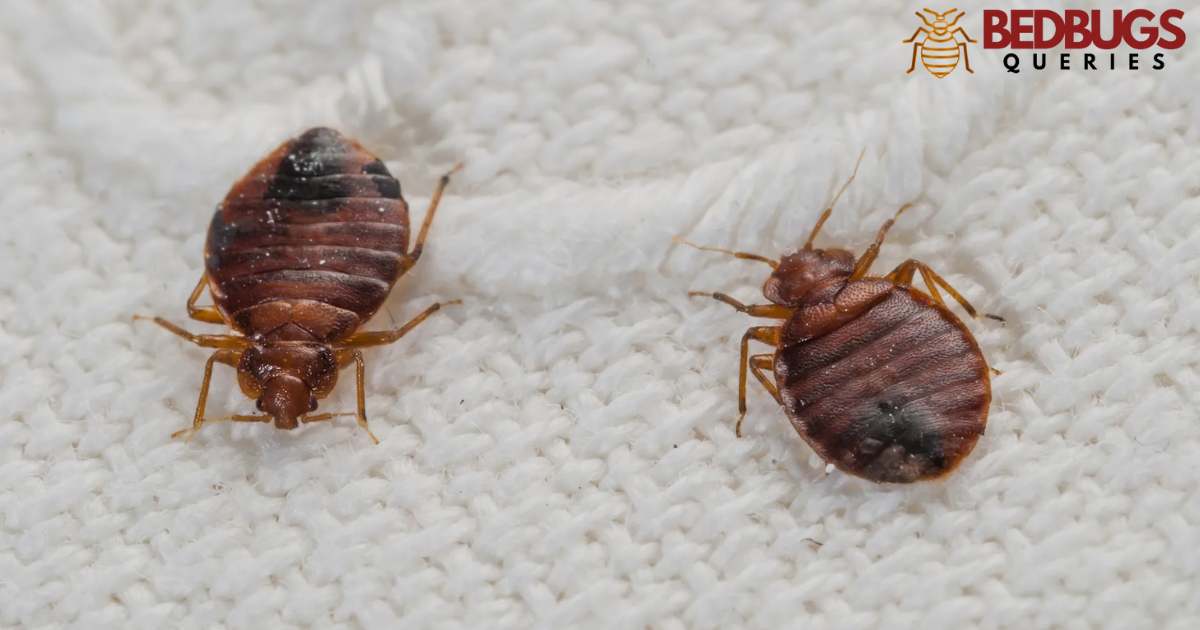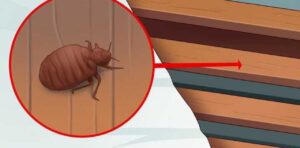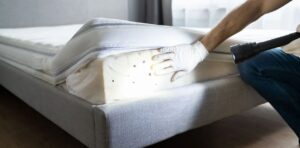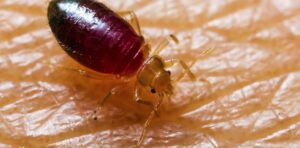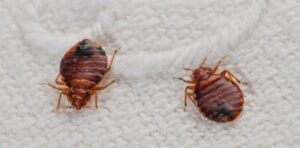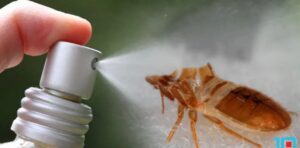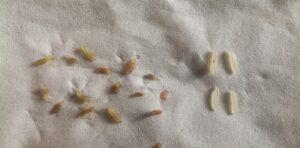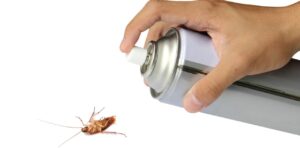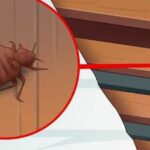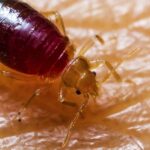Bed bugs are tiny pests that can cause significant discomfort by feeding on your blood while you sleep. The concern about whether they can bite through sheets is valid, as it affects our peaceful nights. In this article, we’ll answer the question: Can Bed Bugs Bite Through Sheets? and provide you with essential information to help you understand and combat this issue.
Worried about those pesky bed bugs finding their way through your sheets? We’ll reveal the facts you need to know about their biting capabilities. Understanding their behavior and learning how to protect yourself is crucial for peaceful, uninterrupted sleep.
To avoid the unpleasant experience of bed bug bites, you can take several proactive steps. We’ll share practical tips to protect your sleep sanctuary, including how to detect bed bugs, the types of fabrics that offer some resistance, and dispelling common myths about these pests.
How Do You Know if You Have Bed Bugs in Your Sheets?
Before we address the question of whether bed bugs can bite through sheets, it’s essential to know how to detect their presence in your bedding. Signs of a bed bug infestation include small, reddish-brown insects, tiny white eggs, and dark fecal stains on your sheets or mattress. If you wake up with itchy, red welts on your skin, especially in a linear or clustered pattern, that could also be a sign of bed bug bites.
Do Bed Bugs Stay in Sheets?
Bed bugs are expert hitchhikers, which means they can easily travel from one location to another, including your sheets. While they may hide in the seams and folds of your sheets during the day, they are not limited to this area. Bed bugs can be found in various hiding spots in your bedroom, such as cracks, crevices, and behind baseboards.
Can Bed Bugs Bite Through Pajamas?
Bed bugs are persistent and can indeed bite through pajamas and other clothing. They have specialized mouthparts that allow them to pierce the skin and feed on your blood. These pests are known for their stealthy feeding habits, and they can find their way through your clothing to reach your skin.
How Do I Check My Room for Bed Bugs?

Checking your room for bed bugs is a crucial step in preventing an infestation. Start by inspecting your mattress, box spring, and bedding for signs of these insects. Use a flashlight to look for live bugs, eggs, or fecal stains. Check the seams, folds, and any cracks in your furniture as well.
Protecting Your Sleep Sanctuary: Bed Bug-Proofing Your Bed
To prevent bed bug infestations and protect yourself while you sleep, consider these tips:
- Encase Your Mattress: Invest in a bed bug-proof mattress encasement to trap any existing bed bugs and prevent new ones from infesting your mattress.
- Use Bed Bug Traps: Place bed bug traps under the legs of your bed to catch any bed bugs trying to climb up.
- Regular Cleaning: Frequently wash your bedding and curtains in hot water to eliminate any potential bed bug presence.
- Reduce Clutter: Declutter your bedroom, as bed bugs love to hide in cluttered spaces.
- Regular Inspections: Regularly inspect your bedroom for signs of bed bugs to catch an infestation early.
Is It Possible for Bed Bugs to Bite Through High-Quality Sheets?
High-quality sheets can provide an added layer of protection against bed bug bites. Thicker, tightly woven fabrics can make it more difficult for bed bugs to penetrate. However, no fabric is entirely bed bug-proof. If you suspect a bed bug infestation, it’s essential to take steps to eliminate the pests rather than relying solely on your sheets for protection.
| Myth or Reality? | Quality of Sheets Matters | Bed Bug Resistance |
| Myth | High-quality sheets may provide some protection, but they’re not entirely bed bug-proof. | Bed bugs are persistent and may find exposed skin despite sheet quality. |
| Reality | High-quality sheets act as a barrier, making it difficult for bed bugs to bite through. | The right sheets can significantly reduce the risk of bed bug bites. |
| Sheet Thread Count | A higher thread count doesn’t guarantee bed bug resistance, but it may enhance sheet quality. | Focus on sheet quality rather than thread count for bed bug prevention. |
| Encasements and Layers | Combining high-quality sheets with bed bug encasements provides an extra layer of protection. | Layering your bedding with encasements and quality sheets can deter bed bugs. |
| Regular Cleaning | Regularly washing your sheets in hot water helps eliminate any potential bed bugs. | Clean sheets are a critical part of maintaining a bed bug-free sleeping environment. |
| Early Detection | Light-colored sheets can aid in early detection of bed bugs on your bedding. | Detecting bed bugs early can prevent a full infestation. |
Bed Bug Myths vs. Reality: Dispelling Common Misconceptions
There are several misconceptions about bed bugs that can make dealing with an infestation more challenging. Let’s clear up a few common myths:
- Myth 1: Bed bugs are only found in dirty or cluttered homes. Reality: Bed bugs can infest any home, regardless of its cleanliness.
- Myth 2: Bed bugs are too small to see. Reality: Adult bed bugs are visible to the naked eye, although they are small (around 4-5 mm in size).
- Myth 3: Bed bugs can only live in beds. Reality: Bed bugs can hide in various locations in your home.
Do Bed Bugs Go Away on Their Own?
Bed bugs are unlikely to go away on their own. They are resilient and can survive for months without a blood meal. If you suspect a bed bug infestation, it’s essential to take action promptly to prevent the problem from getting worse.
What Smells Do Bed Bugs Hate?
Certain scents are known to repel bed bugs. These include lavender, tea tree oil, and peppermint. While these scents can deter bed bugs, they may not entirely eliminate an infestation and should be used in conjunction with other treatments. Ammonia Kill Bed Bugs refers to the use of ammonia as a potential remedy for bed bug infestations. Homeowners facing these relentless blood-feeding insects may consider ammonia as a solution to address their discomfort.
How Can I Avoid Bed Bugs While Sleeping?
To avoid bed bug bites while sleeping, follow these precautions:
- Use bed bug-proof mattress and pillow encasements.
- Wash and dry your bedding regularly on high heat.
- Keep your bedroom clutter-free to reduce hiding spots.
- Be cautious when traveling, as bed bugs can be picked up in hotels and transported home.
Can They Really Bite Through Sheets?
Bed bugs are small insects, typically around 5 mm in size. They have a tiny, needle-like mouthpart called a proboscis that they use to pierce the skin and feed on their host’s blood. However, they don’t have the physical strength or specialized tools to bite through sheets.
While they can crawl on your sheets, they rely on finding exposed skin to feed. Sheets act as a barrier that can hinder their feeding attempts, making it harder for them to bite you. However, they are persistent and may eventually find their way to exposed areas.
Are Your Bedding Choices Bed Bug-Proof?
Your choice of bedding materials can make a significant difference in protecting yourself from bed bug bites. Here are some tips for selecting bedding that can help deter these unwanted visitors:
- Use Encasements: Bed bug-proof encasements for mattresses and box springs are an effective way to keep bed bugs out of your sleeping area. These encasements are designed to trap bed bugs and prevent them from reaching you.
- Opt for Light-Colored Sheets: Light-colored sheets make it easier to spot bed bugs if they do end up on your bedding. This early detection can help you take action before a full infestation occurs.
- Regular Cleaning: Washing your sheets and pillowcases regularly in hot water can help eliminate any bed bugs that might be hiding in your bedding.
- Avoid Second-Hand Bedding: When purchasing bedding, especially mattresses and box springs, it’s best to buy new ones to reduce the risk of bed bug infestations from previous owners.
Bed Bug Bite Mechanisms
To understand why bed bugs can’t bite through sheets, it’s important to know how they feed. Bed bugs use their proboscis to pierce the skin and access blood vessels. However, they are not equipped to chew through fabric. Sheets, blankets, and clothing act as a barrier between them and their host, making it more difficult for them to find a suitable feeding site.
Do Bed Bugs Go Away on Their Own?
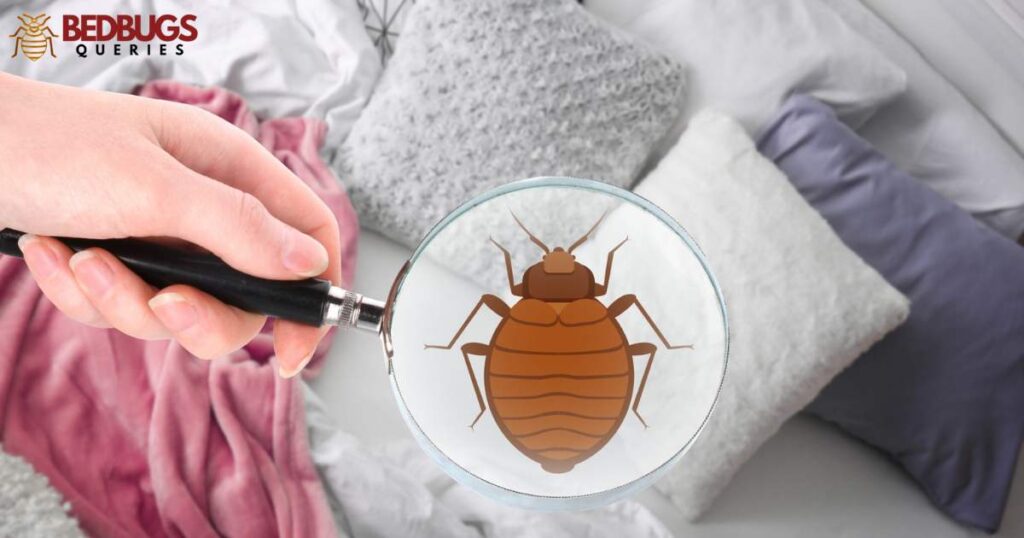
Unfortunately, bed bugs are not known to disappear on their own. Bed bug infestations tend to worsen over time if left untreated. These pests can survive for months without a blood meal, and they reproduce quickly. The longer you wait, the larger the infestation becomes.
What Smells Do Bed Bugs Hate?
There are certain scents that bed bugs dislike, and using these can be part of a comprehensive bed bug prevention strategy. Bed bugs have a strong aversion to the smell of:
- Lavender
- Peppermint
- Tea tree oil
- Cinnamon
- Lemongrass
Using essential oils or products containing these scents may help deter bed bugs from approaching your sleeping area.
How Can I Avoid Bed Bugs While Sleeping?
In addition to using the right bedding materials, there are several other steps you can take to avoid bed bugs while sleeping:
- Regularly inspect your mattress and bedding for signs of bed bugs, such as small reddish-brown bugs, shed skins, or tiny white eggs.
- Avoid placing your luggage or bags on your bed or the floor in hotel rooms or other potentially infested areas.
- When traveling, use bed bug-proof luggage encasements, which can help prevent bed bugs from hitching a ride home with you.
- Be cautious when buying used furniture, especially mattresses and upholstered items. Inspect them thoroughly before bringing them into your home.
- If you suspect a bed bug infestation, contact a professional pest control service. Trying to handle it on your own can make the problem worse.
What is the Truth About Bed Bug-Resistant Sheets?
There are various bed bug-resistant sheets available on the market. These sheets are designed to create a barrier that prevents bed bugs from penetrating your bedding. While they can be an additional layer of protection, it’s important to remember that no sheet is entirely bed bug-proof.
The most effective way to use bed bug-resistant sheets is in conjunction with other preventive measures, such as mattress encasements and regular cleaning.
Bed Bug Bites: Identifying, Treating, and Preventing Them
Identifying bed bug bites can be tricky since they look similar to other insect bites. Bed bug bites often appear as itchy, red, and raised welts. They can occur in clusters or lines, commonly on exposed areas like the arms, neck, and face. If you suspect you have been bitten by bed bugs, here are some steps to take:
- Wash the affected area with soap and water to reduce the risk of infection.
- Apply an over-the-counter antihistamine cream to alleviate itching.
- Consult a healthcare professional if the bites are severe or if you experience an allergic reaction.
FAQ’s
Are bed bugs able to bite through sheets?
Bed bugs lack the physical strength to bite through sheets. While they may crawl on your bedding, they rely on exposed skin for feeding.
Can using light-colored sheets help prevent bed bug bites?
Opting for light-colored sheets can make it easier to spot bed bugs on your bedding, enabling early detection and intervention.
What are some scents that bed bugs dislike?
Bed bugs have an aversion to scents like lavender, peppermint, tea tree oil, cinnamon, and lemongrass, which can be used in a prevention strategy.
Do bed bug-resistant sheets guarantee total protection from bed bugs?
No sheet is entirely bed bug-proof, but bed bug-resistant sheets can be a helpful part of your overall bed bug prevention plan when used alongside other measures.
How can I identify and treat bed bug bites?
Bed bug bites typically appear as itchy, red welts on exposed areas. To alleviate itching, wash the area, apply an antihistamine cream, and seek medical attention if needed.
Conclusion
In the quest to uncover the truth about bed bugs and their knack for biting through sheets, we’ve debunked the myth. The answer is clear: Can Bed Bugs Bite Through Sheets? No, they can’t. Their tiny, needle-like mouths aren’t equipped to chew through fabric, but they persist in seeking exposed skin.
When you crawl under your sheets at night, rest assured that while bed bugs may try, they won’t pierce through that barrier. Your choice of bedding materials and using preventive measures play a vital role in keeping bed bugs at bay. From light-colored sheets for early detection to scents that bed bugs dislike, you now have the knowledge to safeguard your sleep sanctuary.
Remember, no sheet is entirely bed bug-proof, but with the right strategies, you can minimize the risk of bed bug bites and enjoy peaceful nights of slumber. So, the next time you wonder, can bed bugs bite through sheets? you’ll know the answer and how to protect yourself.

